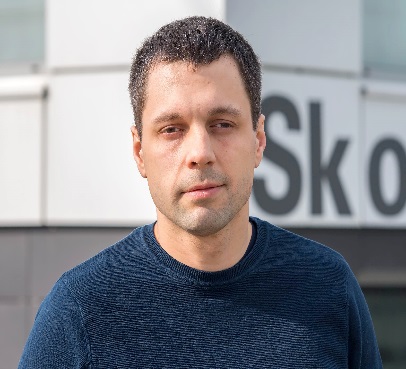报告题目: Latent Convolutional Models for Image Re-storation
报告人:Evgeny Burnaev,副教授,斯科尔科沃科技研究院
照片:

邀请人:董从造
报告时间:2019年03月13日(周三)下午15:00-16:00
报告地点:信远楼II206williamhill威廉希尔官网报告厅
报告人简介:
Evgeny Burnaev obtained his MSc in Applied Physics and Mathematics from the Moscow Institute of Physics and Technology in 2006. After successfully defending his PhD thesis in Foundations of Computer Science at the Institute for Information Transmission Problem RAS in 2008, Evgeny stayed with the Institute as a head of IITP Data Analysis and Predictive Modeling Lab. Since 2007 Evgeny Burnaev carried out a number of successful industrial projects with Airbus, SAFT, IHI, and Sahara Force India Formula 1 team among others as a Head of Data Analysis group in Datadvance llc. Since 2016 Evgeny Burnaev is an Associate Professor of Skoltech and manages his research group for Advanced Data Analytics in Science and Engineering, specialized in industrial analytics and development of machine learning methods. The main research directions are predictive modeling for optimization of technological processes and 3D computer vision with medical applications.
In 2017 Evgeny Burnaev (jointly with Alexey Zaytsev and Maxim Panov) was honored with the Moscow Government Prize for Young Scientists (莫斯科政府青年学者奖,总共四个人获此殊荣) in the category "Transmission, Storage, Processing and Protection of Information" for his scientific contribution and leading the project "The development of methods for predictive analytics for processing industrial, biomedical and financial data."
注:1. Burnaev教授将在公司举行机器学习的系列报告,欢迎参加。
2. Burnaev教授目前正在公司为大三员工和研究生讲授《贝叶斯机器学习》课程,共32学时,前16学时安排在本周和下周的周二、四、五下午两点开始,欢迎感兴趣的师生前往学习交流。
3. Burnaev教授所在斯科尔科沃科技研究院与MIT联合举办2019机器学习暑期学校,目前开放员工和老师注册,具体信息详见:
https://www.skoltech.ru/en/2019/03/machine-learning-summer-school-2019-at-skoltech/
http://mlss2019.skoltech.ru
https://facebook.com/SkoltechMLSS/
报告摘要:We present a new latent model of natural images that can be learned on large-scale datasets. The learning process provides a latent embedding for every image in the training dataset, as well as a deep convolutional network that maps the latent space to the image space. After training, the new model provides a strong and universal image prior for a variety of image restoration tasks such as large-hole inpainting, superresolution, and colorization. To model high-resolution natural images, our approach uses latent spaces of very high dimensionality (one to two orders of magnitude higher than previous latent image models). To tackle this high dimensionality, we use latent spaces with a special manifold structure (convolutional manifolds) parameterized by a ConvNet of a certain architecture. In the experiments, we compare the learned latent models with latent models learned by autoencoders, advanced variants of generative adversarial networks, and a strong baseline system using simpler parameterization of the latent space. Our model outperforms the competing approaches over a range of restoration tasks.
Key words: Deep Neural Networks, Computer Vision, Image Processing, 3D Computer Vision
主办单位:williamhill威廉希尔官网